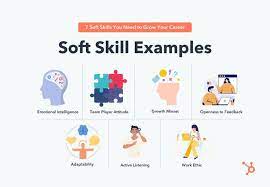Unlock Your Potential: Elevate Your Skills with Professional Training Courses
The Benefits of Training Courses for Personal and Professional Development
Training courses play a crucial role in enhancing both personal and professional development. Whether you are looking to acquire new skills, advance in your career, or stay updated with the latest industry trends, enrolling in training courses can offer a multitude of benefits.
Enhanced Skills and Knowledge
One of the primary advantages of training courses is the opportunity to acquire new skills and knowledge. Whether it’s learning a new software program, mastering a specific technique, or gaining insights into industry best practices, training courses provide valuable learning experiences that can enhance your expertise.
Career Advancement
Investing in training courses can significantly boost your career prospects. By acquiring new skills and qualifications, you increase your value as an employee and open up opportunities for advancement within your current organisation or in the job market.
Professional Networking
Training courses offer a great platform for networking with like-minded professionals and industry experts. Building connections during training sessions can lead to valuable collaborations, mentorships, and job opportunities in the future.
Stay Updated with Industry Trends
In today’s fast-paced world, industries are constantly evolving. Training courses help you stay abreast of the latest trends, technologies, and practices relevant to your field. This continuous learning ensures that you remain competitive and adaptable in an ever-changing professional landscape.
Personal Growth
Besides professional development, training courses also contribute to personal growth. They challenge you to step out of your comfort zone, develop critical thinking skills, improve problem-solving abilities, and enhance overall confidence.
Conclusion
Training courses are invaluable tools for personal and professional development. They provide opportunities to acquire new skills, advance in your career, expand your network, stay updated with industry trends, and foster personal growth. Investing time and effort in training courses can yield long-term benefits that propel you towards success in both your personal and professional life.
Frequently Asked Questions About Training Courses: Choosing the Right Path for Employment and Skills Development
- Which is the best course for getting job?
- What are the most popular training courses?
- What is a training course?
- What is a training diploma?
- What course is best for job?
- Which is the best training course?
- Why do we need training courses?
- Which course is best for work from home?
Which is the best course for getting job?
When considering which course is the best for securing a job, it is essential to assess your career goals, interests, and the current demands of the job market. Researching industry trends and job requirements can help identify courses that align with sought-after skills and qualifications. Opting for courses that offer practical experience, industry certifications, and opportunities for networking can enhance your employability and increase your chances of securing a job in your desired field. Additionally, seeking guidance from career advisors or professionals in the industry can provide valuable insights into which courses are most valued by employers and can lead to successful job outcomes.
What are the most popular training courses?
The question “What are the most popular training courses?” is a common query among individuals seeking to enhance their skills and knowledge. The popularity of training courses can vary depending on industry trends, emerging technologies, and evolving job market demands. Some of the most sought-after training courses often include project management, digital marketing, coding and programming languages, leadership development, data analysis, and communication skills. These courses are popular due to their relevance in today’s competitive job market and their ability to equip learners with valuable skills that can lead to career advancement and personal growth.
What is a training course?
A training course is a structured program designed to provide individuals with specific knowledge, skills, and expertise in a particular subject or field. These courses aim to enhance the capabilities of participants through a combination of theoretical learning, practical exercises, and hands-on experience. By enrolling in a training course, individuals can acquire new competencies, improve existing skills, and stay updated with the latest industry practices. Training courses can vary in duration, format, and content, catering to different learning styles and objectives. Overall, a training course serves as a valuable opportunity for personal and professional development by offering focused instruction and guidance in a targeted area of study.
What is a training diploma?
A training diploma is a formal qualification awarded upon successful completion of a structured training programme. It serves as a recognition of an individual’s proficiency and knowledge in a specific area or field of study. A training diploma typically involves a series of courses, assessments, and practical exercises designed to equip participants with the necessary skills and expertise to excel in their chosen profession. Holding a training diploma can enhance one’s credibility, career prospects, and earning potential by demonstrating a commitment to continuous learning and professional development.
What course is best for job?
When considering which training course is best for a job, it is essential to evaluate your career goals, current skill set, and the specific requirements of the job you are targeting. Opting for a course that aligns with your career aspirations and fills any skill gaps can significantly enhance your job prospects. Researching industry trends and consulting with professionals in the field can also help in determining the most relevant and beneficial course to pursue. Ultimately, selecting a training course that enhances your expertise and complements the job requirements can greatly increase your chances of securing employment and advancing in your career.
Which is the best training course?
When it comes to determining the best training course, it ultimately depends on individual goals, interests, and career aspirations. The “best” training course is subjective and varies from person to person. Factors such as the desired skill set to be acquired, industry relevance, accreditation, course content, mode of delivery (online or in-person), and budget all play a significant role in choosing the most suitable training course. It is essential for individuals to carefully assess their needs and research various options to find a training course that aligns with their objectives and offers the most value in terms of personal and professional development.
Why do we need training courses?
Training courses are essential for individuals and organisations alike because they offer a structured and effective way to acquire new skills, enhance existing knowledge, and stay competitive in today’s dynamic job market. By enrolling in training courses, individuals can broaden their expertise, boost their career prospects, and adapt to the evolving demands of their industries. For organisations, investing in training courses for their employees leads to improved performance, increased productivity, and a skilled workforce that can drive innovation and growth. In essence, training courses are a vital investment in continuous learning and development that benefits both individuals and businesses in achieving their goals and staying ahead in an ever-changing world.
Which course is best for work from home?
When considering the best course for work from home opportunities, it is essential to focus on skills that are in high demand in remote work settings. Courses related to digital marketing, graphic design, web development, content writing, virtual assistance, and online project management are popular choices for individuals looking to excel in work from home roles. These courses equip learners with the necessary skills to thrive in a virtual work environment and enhance their career prospects in the rapidly evolving digital landscape. By investing in these courses, individuals can position themselves for success and effectively navigate the challenges of remote work while maximising their productivity and job satisfaction.












